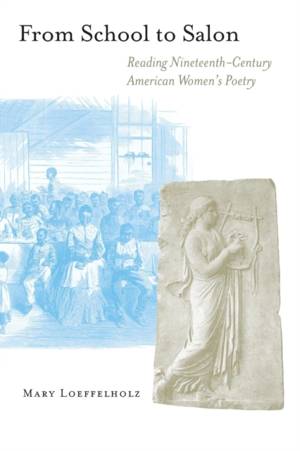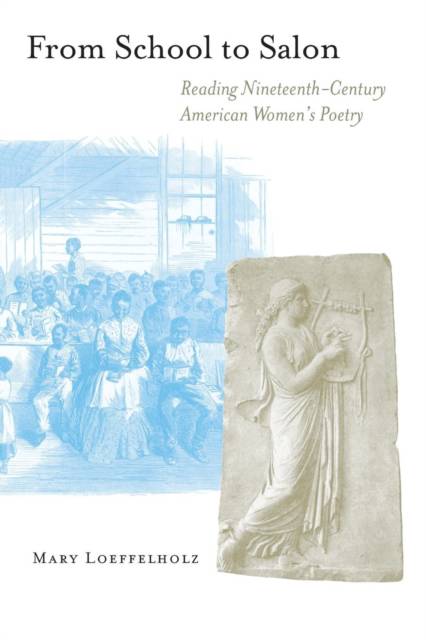
Je cadeautjes zeker op tijd in huis hebben voor de feestdagen? Kom langs in onze winkels en vind het perfecte geschenk!
- Afhalen na 1 uur in een winkel met voorraad
- Gratis thuislevering in België vanaf € 30
- Ruim aanbod met 7 miljoen producten
Je cadeautjes zeker op tijd in huis hebben voor de feestdagen? Kom langs in onze winkels en vind het perfecte geschenk!
- Afhalen na 1 uur in een winkel met voorraad
- Gratis thuislevering in België vanaf € 30
- Ruim aanbod met 7 miljoen producten
Zoeken
From School to Salon
Reading Nineteenth-Century American Women's Poetry
Mary Loeffelholz
Paperback | Engels
€ 93,45
+ 186 punten
Omschrijving
With the transformation and expansion of the nineteenth-century American literary canon in the past two decades, the work of the era's American women poets has come to be widely anthologized. But scant scholarship has arisen to make full sense of it. From School to Salon responds to this glaring gap.
Mary Loeffelholz presents the work of nineteenth-century women poets in the context of the history, culture, and politics of the times. She uses a series of case studies to discuss why the recovery of nineteenth-century women's poetry has been a process of anthologization without succeeding analysis. At the same time, she provides a much-needed account of the changing social contexts through which nineteenth-century American women became poets: initially by reading, reciting, writing, and publishing poetry in school, and later, by doing those same things in literary salons, institutions created by the high-culture movement of the day. Along the way, Loeffelholz provides detailed analyses of the poetry, much of which has received little or no recent critical attention. She focuses on the works of a remarkably diverse array of poets, including Lucretia Maria Davidson, Lydia Sigourney, Maria Lowell, Frances Ellen Watkins Harper, Emily Dickinson, Helen Hunt Jackson, and Annie Fields. Impeccably researched and gracefully written, From School to Salon moves the study of nineteenth-century women's poetry to a new and momentous level.Specificaties
Betrokkenen
- Auteur(s):
- Uitgeverij:
Inhoud
- Aantal bladzijden:
- 275
- Taal:
- Engels
Eigenschappen
- Productcode (EAN):
- 9780691049403
- Verschijningsdatum:
- 8/08/2004
- Uitvoering:
- Paperback
- Formaat:
- Trade paperback (VS)
- Afmetingen:
- 153 mm x 234 mm
- Gewicht:
- 408 g

Alleen bij Standaard Boekhandel
+ 186 punten op je klantenkaart van Standaard Boekhandel
Beoordelingen
We publiceren alleen reviews die voldoen aan de voorwaarden voor reviews. Bekijk onze voorwaarden voor reviews.









